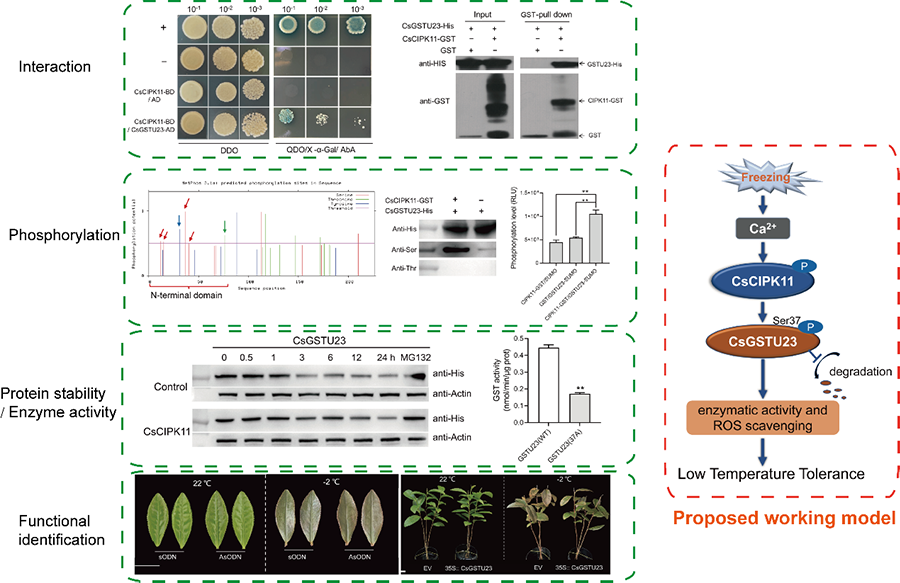
Researchers Identify Key Gene Module for Cold Resistance in Tea Plants
TRI’s research team of tea plant genetic breeding has recently identified the functional gene module in regulating cold resistance of tea plants. Their findings were published in Plant, Cell & Environment.
Cold stress is a major factor that negatively impacts the growth, development, and quality of Camellia sinensis (Cs, tea) plants. The CBL-interacting protein kinases (CIPK) comprise a pivotal protein family involved in plant development and responses to multiple environmental stimuli. However, their roles and regulatory mechanisms in tea plants remain unknown.

In this study, the researchers discovered that CsCIPK11 and glutathione-S-transferase 23 (CsGSTU23) are key players in enhancing the cold tolerance of tea plants. CsCIPK11 interacted with phosphorylated CsGSTU23 to enhance its stability and enzymatic activity. This interaction boosts the antioxidant capacity of the plants and enable them to better withstand low temperatures. These findings provide valuable genetic resources for the selection and breeding of cold-resistant tea plant varieties.
This study was supported by the National Natural Science Foundation of China, the Special Project of Zhejiang Province, the China Agriculture Research System of MOF and MARA, and the Chinese Academy of Agricultural Sciences through an Innovation Project for Agricultural Sciences and Technology.
For more details, read the full article in Plant, Cell & Environment here:

By Taimei Di (ditaimei@tricaas.com)